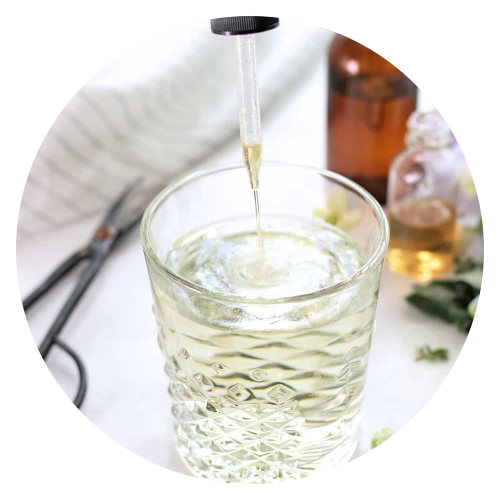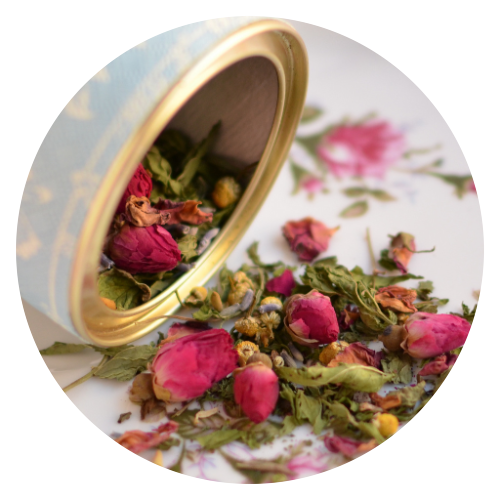Why We Chose These Ingredients
Senna Leaf - Also known as the cassia marilandica or locust plant, these leaves have commonly been used for its laxative properties. Senna contains glycosides, which are a group of organic compound that work by smoothing the muscles of the digestive system.
Licorice Root - Used in traditional Chinese and Ayurvedic medicine for centuries, licorice is the root of Glycyrrhiza glabra from which a sweet flavor can be extracted. It's uses include soothing stomach issues such as food poisoning, stomach ulcers and heartburn. It is also prized for the anti-inflammatory and immune-boosting properties derived from its glycyrrhiza acid.
Green Rooibos - Rooibos tea contains several nutrients that are antispasmodic, which help to prevent stomach pains. A study published in the Basic & Clinical Pharmacology & Toxicology Journal shows that compounds such as quercetin, orientin and vitexin helped to relax the digestive system and relieve feelings of discomfort.
Orange - Orange peel is anti-inflammatory and contain lots of fiber and non-soluble polysaccharides which help food move through your intestines better and digestion to work smoothly.
Chicory - A native Mediterranean plant, chicory is a common herbaceous plant that is a valuable source of vitamins and mineral. These include since, magnesium, manganese, calcium, folic acid, potassium, and vitamins A, B6, C, E and K. Chicory has been used to ease digestive issues, prevent heartburn, and reduce inflammation.
Aniseed - The greenish seeds of the Pimpinella anisum have been a sought-after commodity throughout history. Aniseed is an excellent source of iron, manganese, magnesium, calcium, zinc, potassium and copper. These minerals are essential to cardiac, bone and blood health. The seeds have also been used to improve digestion and reduce nausea and aid in insomnia.
Slippery Elm - Native to North America, Slippery Elm or Ulmus rubra, is a traditional herbal remedy that has been used by Native American for centuries. The active ingredient in slipper elm is called mucilage, which has the ability to coat and sooth the mouth, throat, stomach and intestines. Because of this it has been used to relieve symptoms from IBS and other gastrointestinal ailments.
Pu-Erh Tea - Pu-erh tea improves digestion and can help relieve symptoms of constipation thanks to the existence of lovastatin in these tea leaves. The antioxidants and polyphenols in pu-erh teas also aid in digestion and fat breakdown.
Ginger - Ginger root or Zingiber officinale is a traditional remedy for nausea and indigestion that has been used for centuries throughout the world. Additionally it is thought to be an effective anti-viral, which makes it an ideal cold and flu remedy. Ginger is also a powerful anti-inflammatory used to treat joint problems and arthritis.
Herbal alternatives are not meant to be a replacement for care under a qualified health professional, but should be discussed with your doctor and considered a complimentary modality, especially when pregnant, breastfeeding, or taking prescribed medication. Keep out of reach of children. This information is for general research purposes only and has not been evaluated by the FDA and is not intended to diagnose, treat, or cure any disease. The user of this material is solely responsible for determining fitness for any particular use and complying with all applicable laws and regulations.




